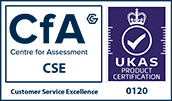Topic Guide: Peace Studies at the University of Bradford - the early years
Peace Studies at the University of Bradford celebrated its 40th anniversary in 2013/14. The department, for which the University is well known worldwide, was created to address concerns about war. George Murphy, a Quaker, asked other Quakers to support a Chair in peace research in a British university. He later joined the University of Bradford, whose unique Charter committed it to using technological advances in support of human welfare. Its Vice-Chancellor, Ted Edwards, and Pro-Vice-Chancellor, Robert McKinlay (himself a Friend), had long been concerned about the "Bomb and the Hungry World" and had agreed that the University should explore creating departments to research ways to tackle these threats.
The Society of Friends and the University set up an Appeal to raise funds for a Chair in Peace Studies at Bradford. It reached its financial target in ten weeks. The first Chair, Adam Curle, joined the University in 1973.
Online and published sources
Peace Studies has been the subject of many publications. Here are some of the most useful and accessible.
Our 100 Objects exhibition includes several articles about Peace Studies.
City of Peace, edited by Carol Rank, covers the department as part of the wider story of radical Bradford; see in particular Paul Rogers and Simon Whitby on the history of Peace Studies.
The University of Bradford: the early years, by Robert McKinlay, has an invaluable chapter on the early years of Peace Studies.
Those wanting more detail and an academic perspective should seek out Simon Whitby's M Phil thesis A History of Peace Studies at the University of Bradford. The work reproduces many key documents, covers conflicts and controversies, and puts the department into the context of peace research at the time.
Sources in Special Collections
The University Archive contains University meeting papers, correspondence, photographs, publicity, press cuttings, student newspapers, prospectuses etc. In particular we have important sets of papers from Ted Edwards and Robert McKinlay concerning the setting up of Peace Studies.
Archives of organisations with links to the department notably Quaker Peace Studies Trust, Alternative Defence Commission, Commonweal Collection.
Archives of key individuals such as Ted Edwards and Adam Curle.
The University Book Collection and the Peace Pamphlets contain many relevant publications, such as lectures, reports, bulletins, and textbooks. We aim to collect everything published by Peace Studies plus significant work by members of staff for other publishers.



